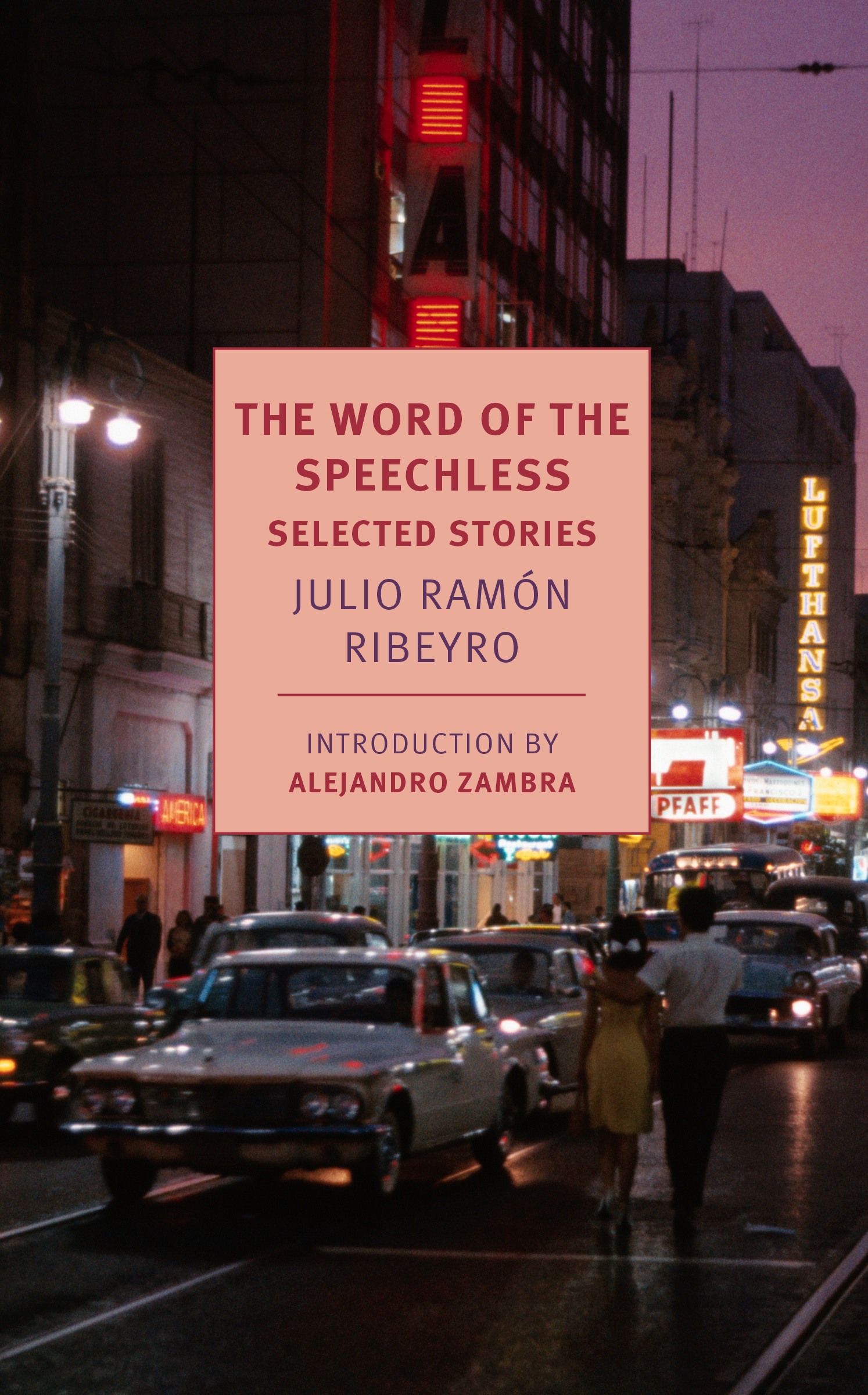The Word of the Speechless: Stories by Julio Ramón Ribeyro
Reviews
by Ross Nervig
“None of this surprises me,” one of Julio Ramón Ribeyro’s characters muses early on in The Word of the Speechless: Selected Stories, adding with plucky valor: “A man of my quality could not remain buried in oblivion.” Oblivion. That is the word that binds these stories together.
Ribeyro’s ignoble characters are either dogged by oblivion or find themselves suddenly face to face with it. The man of quality quoted above is given the job opportunity of his dreams only to choke on his own fear of failure before he sets foot in the building. In another, a bankrupt grocer plays host to all of his creditors in his derelict store while they discuss his fate in front of him. Another story finds a beachcomber trying in vain to stave off the encroaching gentrification of his little strip of beach.
Limbo, disregard, and obscurity loom just beyond the turn of the page, ready to engulf the poor souls that populate this collection. Some characters even begin their stories in oblivion, and most fail to escape it. Take pitiful Arístides, for example, who considers himself at the outset of his story “excluded from the banquet of life” and by the end, after being tricked into working for free, feels “as if a dog had just urinated on him.”
The author himself was no stranger to oblivion. A writer from Lima living abroad in Paris, he published collections and novels from the mid-1950s until his death in the early nineties but never became a household name like his frenemy and fellow Peruvian Mario Vargas Llosa. Little known outside certain Latin literary circles, Ribeyro was fated to toil in the shadows of his many Boom contemporaries: Garcia Marquez, Fuentes, and Borges. And in an ending such as he might deal a fictional character, he won the Juan Rulfo Prize for Literature (and the accompanying US $100,000) just days before dying.
Yet, it is the struggle that renders one heroic, in Ribeyro’s case and in the case of his characters. “Why The Word of the Speechless?” editor and translator Katherine Silver asks of this collection in its opening pages before directing the reader to an excerpt from one of the author’s letters: “In most of my stories, those who are deprived of words in life find expression—the marginalized, the forgotten, those condemned to an existence without harmony and without voice.” Ribeyro’s aim, he goes on to remark, is to restore “the breath” these folks have been denied.
Accompanying that breath is a roar of “longings, outbursts, and distress.” These folks are rendered by Ribeyro with such warmth, humor, and humanity that their misery—for the reader at least—is no slog to experience. To the contrary, Ribeyro’s work is often hilarious, its humor springing forth from the author’s smirking pessimism and deft sense of irony. And the ironies do abound. In “The Insignia,” a character is invited into a secret society after finding a badge on the street. Despite being ignorant of the society’s rituals, he rises in rank until he becomes its leader while remaining totally ignorant of the order’s purpose. In “For Smokers Only,” it is the sight of construction workers on their smoke break that gives the emphysemic narrator the strength to keep living. The most striking image of the collection arrives near the end when a forgotten maestro puts a cassette into a boom box at a get-together and conducts the “symphony” with his baton as a party favor.
It’s likely the publication of The Word of the Speechless won’t bring Ribeyro’s name the acclaim that escaped him during his lifetime. A survey of his entire career, with stories cherry-picked from ten different collections, it is an uneven assortment containing a few forgettable stories that eschew the author’s sense of humor for a creeping dread. This book will, however, find and touch those readers down at their heels, struggling against oblivions of their own, and in need of fellowship. It would be no surprise if copies were passed around from one downcast booklover to another. It certainly would not surprise Ribeyro: a writer of his quality cannot remain buried in oblivion, either.
Ross Nervig is a writer living in Nova Scotia. From 2012-2017, he served as a founding member of Revolver—a literary arts collective based in St. Paul, Minnesota. His work has appeared in Kenyon Review, Bluestem Journal, Bayou Magazine, Southwest Review, and Huffington Post. He is currently an MFA Candidate in Fiction at the University of New Orleans. In 2018, he received the University of New Orleans Creative Writing Workshop’s Ernest and Shirley Svenson Award for Fiction.
More Reviews



